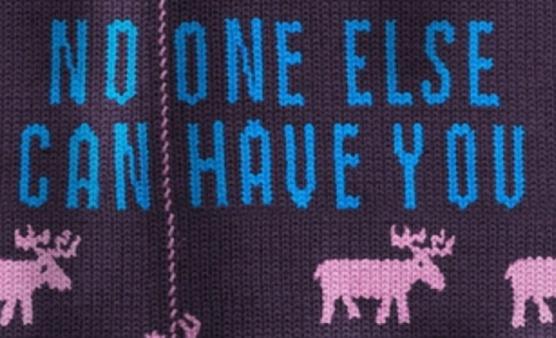Dear Ms Hale and the editors of Guardian Books,
I’ve been reviewing books for about 4 years now. I’ve used my name online for that length of time but it’s not due to some desire for fame or transparency. It was more to do with youthful foolishness and my naïve trust in the people I talked to online. They were friends, right, so they wouldn’t do anything bad to me. Looking back, I can’t help but feel stupid at such gullibility, and if I could go back in time, I would immediately use a pseudonym.
I read your article on the Guardian today with a mixture of shock, confusion and genuine fear. The piece, “Am I Being Catfished? An Author Confronts Her Number One Online Critic” was not only a hatchet job full of factual inaccuracies, it was a straight up bragging fest about stalking someone who had the gall to give you a negative review. The reviewer in question (who, in the interests of transparency, I have been friendly with for many years now on Goodreads), you claimed, was using a false identity, which you took great pains to unmask. Said unmasking including gathering of her online information, subtweeting to deliberately antagonise, getting hold of her personal address to directly meet her, and more that I can’t even type here because it makes me that sick. You even refer to your activities as “stalking”, although you don’t seem to understand the weight of that term.
One of the resources you quote as an expert on this issue is the website Stop The Goodreads Bullies. If you, or your editor at Guardian Books, had done any research on this subject, like 10 seconds of Googling, you would know that this website is the epitome of everything it claims to be against. Frequently refuted and one of the most ethically bankrupt sites in online book blogging, STGRB has engaged in the most scurrilous of harassment and stalking, including gathering of the private details of several reviewers, cherry picking of incidents in order to make them look like villains, and frequent slander, referring to bloggers as bad parents, liars, crooks and a whole assortment of nasty terms. This behaviour led to one reviewer featured on the site receiving phone calls at her house. The site’s numerous displays of unethical bullying have been documented far and wide online, and appears on the first page of Google when you search “Stop The Goodreads Bullies”. At one point in the past, I was featured on that site for a review I wrote. While I was lucky enough not to have my personal details posted, I was referred to as “pathetic” and a “monster”, and every time I post a negative review, part of me wonders if this will be the review that gets me doxxed.
Do you condone this? Do you think this is acceptable? Given your own behaviour, I can’t help but think the answer is yes. The unspoken message of your piece is that privacy is not a right, but something to be stripped away when one sees fit.
The atmosphere in book blogging has become irrevocably toxic in recent years, and it’s readers who have arguably suffered the most. We don’t have the support or resources authors like you have. The Guardian isn’t going to give us space to air our concerns. Authors have editors, agents and PR teams behind them. We usually just have ourselves and our community. You have the power here. If you get a bad review, you have people and resources to help cool off, to instruct you in what to do and how to make the best impression. We have nothing like that. Most of us do this for free because we love doing it. It’s a hobby, not a career. The reason this all escalated to the level it did was because of you, nobody else. You chose to stalk someone, you chose to go to the lengths that you did, and you decided to spin this into a PR victory for yourself by going to the Guardian to write about it. The Guardian chose to give you this space to spin it as such too, and this is especially terrifying given recent events going on online with GamerGate.
No fewer than three women working in video games have been forced from their homes because of vindictive bullies online threats and doxxing them. Brianna Wu and Zoe Quinn can’t return to their own homes because of this blatant act of harassment. It is inexcusable that they have to suffer in this way and it’s inexcusable for you, Ms Hale, to act as some kind of hero for going to the extreme lengths that you did. Why did you feel entitled to stalk someone? For ethics, the same justification GamerGate supporters have for driving women out of their homes in fear? If you had been a man, do you think your actions would have been applauded?
You seem to think that having an online identity different from your real life is an act of fraud, when your actions are the perfect justification for many people doing so. It’s not a crime to draw a line between online and real life. In fact, it’s advisable to do so. Women are statistically speaking the most at risk from online harassment, and the reviewers all targeted by the bullies at STGRB were women. I’ve had to watch women receive rape and death threats on Twitter for daring to have a differing opinion, and I’ve seen a number of great journalists driven from the field because of it. Those voices were the ones we needed the most and now they’re gone. Undoubtedly, your actions will cause a great number of book reviewers to second guess their actions, to self-censor when they dislike a book because maybe, just maybe, that author will launch a co-ordinated attack of them or turn up at their house. You’ve made us all feel that much more unsafe.
For the record, I reviewed your book. I also gave it one star. Did you read my review? Did you consider stalking me? Have you already spent a lot of time watching me on Goodreads and Twitter, wondering where I live and if I’m somehow a fraud? Your book currently has 133 one star reviews on Goodreads. How many of those reviewers did you stalk? How many of them do you think are frauds? Is anyone safe anymore?
And to the Guardian’s books section, I say this: Shame on you for giving this platform to a proud stalker. Shame on you for buying into a culture that rests on a gross imbalance of power and puts countless people at risk. Shame on you for condemning the GamerGate bullies (rightly so) yet letting this go through, completely unaware of the hypocrisy on display. Since you seem to think stalkers turning up uninvited at people’s homes is okay, what else do you condone? I shudder to think.
Today, I am sad for a lot of people. I’m sad that the community of book reviewing I so dearly love has to feel unsafe again, and that authors who care about their readers will be tainted indirectly by this. I’m sad for the reviewer who dared to think she could have differing opinions without fear of stalkers turning up at her home. I’m sad that the concept of privacy and safe spaces has become a punching bag for paranoid hypocrites, and I’m sad that a supposed beacon of ethical journalism sees no problem in giving space (and probably money) to a badly researched hatchet job that condones some of the most sickening behaviour.
Ms Hale, I’ve really no more words for you. I hope you take time to look at what you’ve done, the saddening ramifications of your actions, and consider an apology as well as time off from online activities.
Yours sincerely,
Ceilidh
















